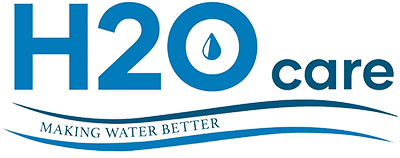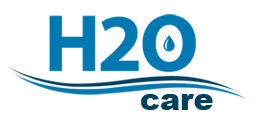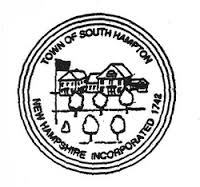
Water Treatment Solutions
Water treatment solutions will effectively address potential water quality issues experienced in South Hampton, New Hampshire. Matching the right technology and sizing the system to meet the water usage demands of your home is key. Additionally, a professionally plumbed system is critical as well as maintenance throughout the years to optimize the useful life and proper functioning of your new equipment as these systems typically process thousand of gallons of water per month.
WATER SOFTENING
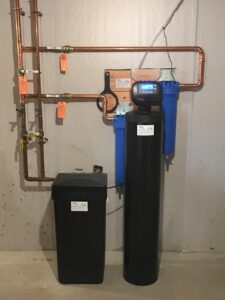
High Efficiency Water Softener
A water softener is a type of whole house water treatment system that is designed for removing hard water minerals (magnesium & calcium) as well as dissolved iron and manganese from the water. For water with high levels of iron or manganese (“the Stainers”), an “up-flow” water softener is recommended to prevent mineral build-up in the bottom of the water softener. Also, high efficiency water softeners that are more efficient with both water and salt usage are preferred.
WHOLE HOME WATER TREATMENT – Arsenic & radon in private wells
Other contaminants found in New England well water include Radon and Arsenic. A water softener will not remove these health threat contaminants. Radon in water is safely removed with an aeration system that agitates the incoming well water, releasing the gas from the water in a sealed chamber. This gas is then safely vented to the outside ambient air.
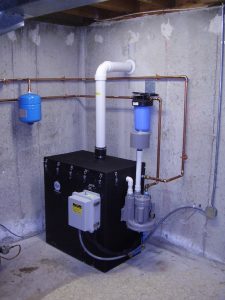
Water Filtration for Radon
Arsenic in water can be removed at the point of entry into the home by installing tanks filled with arsenic specific resin, This captures the arsenic before it can get into the home’s water supply. Also, point of use systems for drinking water can use reverse osmosis technology to effectively remove arsenic as well. Speak to a water treatment professional to decide which system is right for you.
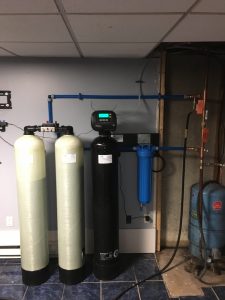
Arsenic system with Ozone
BAD TASTE, ODOR & SEDIMENT REMOVAL
In addition to the above, there are many other systems to remove bad tastes & odors, sediment and many other objectionable minerals and contaminants in the water. Starting with a water test will lead to the right approach.
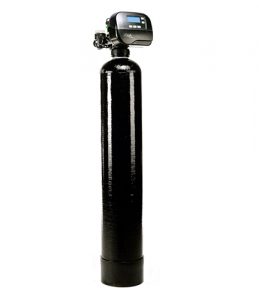
Sediment & Carbon Filtration
For more information on common bad odors & tastes in water supplies, see the link at http://bad-odor-taste/. Also, for more on hard water, see https://water.usgs/edu/hardness.
REMOVAL OF PFAS IN WATER
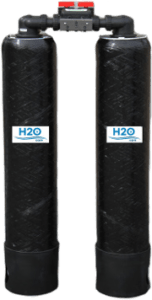
PFAS in Water Removal System
There are technologies effective in removing PFAS from drinking water, especially Perfluorooctanoic acid (PFOA) and Perfluoro octane sulfonic acid (PFOS), which are the most studied of these chemicals. In following, the most effective technologies include ion exchange, activated carbon adsorption and reverse osmosis. Additionally, for whole house filtration of PFAS, Ion exchange is proving to be a better approach. See link for more detail on removal options at https://h2ocare.com/what-are-pfas/
